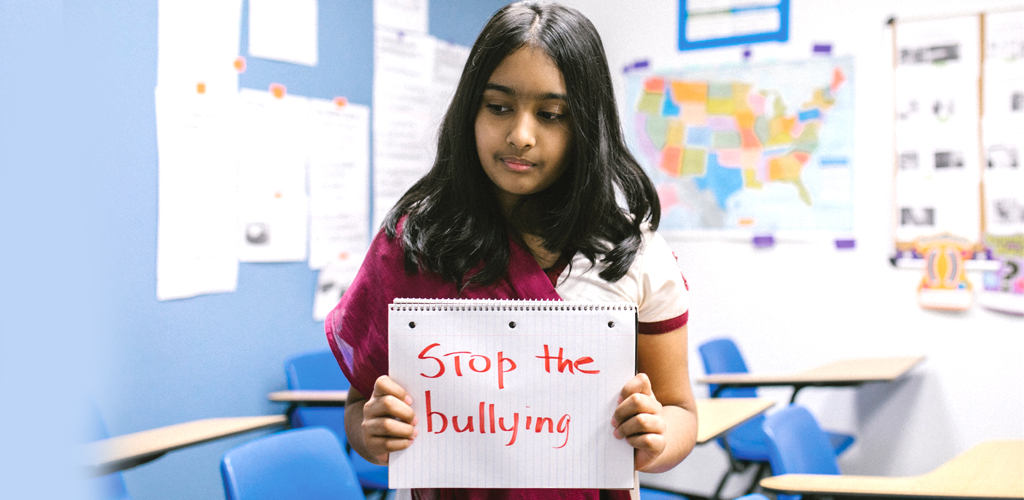Types of Common Behavioral Problems in Children and Solutions
By Samadrita Chakraborty |
Date 09-08-2024

Table of Contents
- What Is Child Behaviour?
- List of Common Behavioral Problems in Child
- What Causes Aggressive Behaviour in Child
- How to Control Aggressive Child Behaviour
- How to Change and Improve Behaviour of a Child
- Difference Between Child and Adult Behaviour
- How to Get Help with Child Behaviour
- Counselling for Child Behaviour
- Also Read…
Admissions Open for
“Oh, please! Do not interfere with my stuff.” Is your child telling you these kinds of things lately? Step forward and recognise their behaviour problem. You may think this is common in children in their teens or going to be one soon. But, the problem is deep-rooted, and sometimes you need support from certified experts if not recognized on time. Before it is too late, delve deeper and move forward to consult professionals. Read this detailed guide based on child behaviour and the reason behind it. Identification of the errors in your child’s behaviour can help you eliminate its destructive effects in the long run.
What Is Child Behaviour?
Child behaviour is the reflection of what they go through and the kind of ambience they are growing up in. It is their action, reaction, and functioning in response to everyday environments and situations. In a nutshell, this refers to the way a child conducts themselves in public and personal space. It includes their behavioural issues and changes that you experience in your child.
List of Common Behavioral Problems in Child

Being a parent means having an overall knowledge of your child’s growth process. A child goes through different stages as they grow. Treatment that they receive in these stages decides whether they will become Adolf Hitler or Mother Teresa. The more your child mingles with the outer world, the more influences they receive. Does that mean you will not allow them to talk to other children? Absolutely NO! What you have to do is to cut off the evil influences and encourage the good influences.
Before that, you must know how evil influences affect your kids’ behaviour:
- They often get angry at a minor issue
- Argue with adults and despise their opinions
- Deliberately annoying others or getting annoyed by others
- They get resentful or spiteful often
- Blaming others for their mistakes
What Causes Aggressive Behaviour in Child

Aggression is also a state of mind like happiness or sadness. It also passes like every other feeling. But, it becomes an alarming sign when it does not deplete with time or frequency of occurrence increases. You may try to tame their sudden rage by scolding or punishing them. That will not solve the issue but summon more problems. According to State Behavioural and Wellness Resources for Children, USA, arrogant child behaviour emerges from some past trauma. Some events where their voice has been suppressed often make them violent. A continuous urge to make their voice heard often drives them to a path where they cannot help being arrogant.
You must have vivid ideas about your child’s activity as a parent. Not to run surveillance on them but to ensure their safety and protect their vulnerability. If you have already started noticing some unusual behaviour in your child, try to know the root cause. Sometimes, aggression comes from:
- Being a victim of physical or mental abuse
- Becoming a scapegoat for bullies
- Exposure to violence in-home or community
- The usage of drugs or alcohol
How to Control Aggressive Child Behaviour

Children often fail to understand their emotions and become violent against their parents. You can control their feelings by being:
Calm
You cannot control violence with violence. Try to stay calm and let their storm blow first. Human brains start reconsidering situations when they do not get the desired response. If you remain stone-still before their rage, they will adapt to your behaviour gradually.
Neutral about Tantrums
Do not indulge in tantrums. Try to stay neutral about situations and handle them wisely. Remember that you are the adult one here, and you have the power to control their aggression. Avoid the easiest way to calm them by giving them what they want.
Positive about Good Behaviour
Suppose your child is aggressive 80% of the time. Look forward to that 20% when he is calm and considerate. Reward them for that particular behaviour and highlight all the good in them. They will lose the will to be aggressive gradually.
Aware of Their Dislikings
An Ideal parent takes care of their child’s likings and dislikings. Eliminate all factors that trigger their aggression by irritating them or giving them a negative vibe.
How to Change and Improve Behaviour of a Child
Fixing anything takes time so does your child’s behaviour. But, practising some essential factors can solve your problem. That include:
- Praise your child for small things
- Set a reward system for their excellent behaviour
- Do not indulge any attention-seeking behaviour in your child
- Communicate with your child
Difference Between Child and Adult Behaviour
Factors that create a drastic difference between child and adult behaviour include:
- Physical development
- Social evolvement
- Cognitive development
- Experience
- Concentration Power
Children thrive on being adults with these fundamental factors. Parents often struggle to infuse these elements in case of special child. In such cases, seeking professional help is a wise decision. But for that, you must ensure a healthy growth process.
How to Get Help with Child Behaviour

Child psychologists are always upfront to help you. Just to let you know that a separate domain in psychology is dedicated to children’s mental and physical growth. Before going to any expert in child psychology, note down some basic things:
- Your child’s companions at school and locality
- The kind of content your child consumes
- Hobbies and the passion that they nurture
- Words that they use very frequently
- Their resentment and eagerness for things
Counselling for Child Behaviour
Child counselling should be a wholesome thing that covers all the domains they are involved in. Some well-known methods used in child counselling are:
Behavioural Classroom Management
Children should receive a fixed code of conduct for their classrooms. It helps them connect with classmates and teachers.
Behavioural Parenting Training
Children suffering from behavioural issues are not often responsible for that. Parents must take ownership of their behavioural misconduct and rectify themselves to improve their child’s psychological behaviour.
Become a Responsible Parent
Now you know how your child’s behaviour changes with time and why it happens. Take some practical steps to create a code of conduct and abide by them strictly. Bring up a mentally and physically healthy child with root-level knowledge.
Also Read…
CBSE Schools In Popular Cities
- CBSE Schools in Bangalore
- CBSE Schools in Mumbai
- CBSE Schools in Pune
- CBSE Schools in Hyderabad
- CBSE Schools in Chennai
- CBSE Schools in Gurgaon
- CBSE Schools in Kolkata
- CBSE Schools in Indore
- CBSE Schools in Sonipat
- CBSE Schools in Delhi
- CBSE Schools in Rohtak
- CBSE Schools in Bhopal
- CBSE Schools in Aurangabad
- CBSE Schools in Jabalpur
- CBSE Schools in Jaipur
- CBSE Schools in Jodhpur
- CBSE Schools in Nagpur
- CBSE Schools in Ahmednagar
- CBSE School In Tumkur

Call Us to know more about Orchids
Swipe Up

















